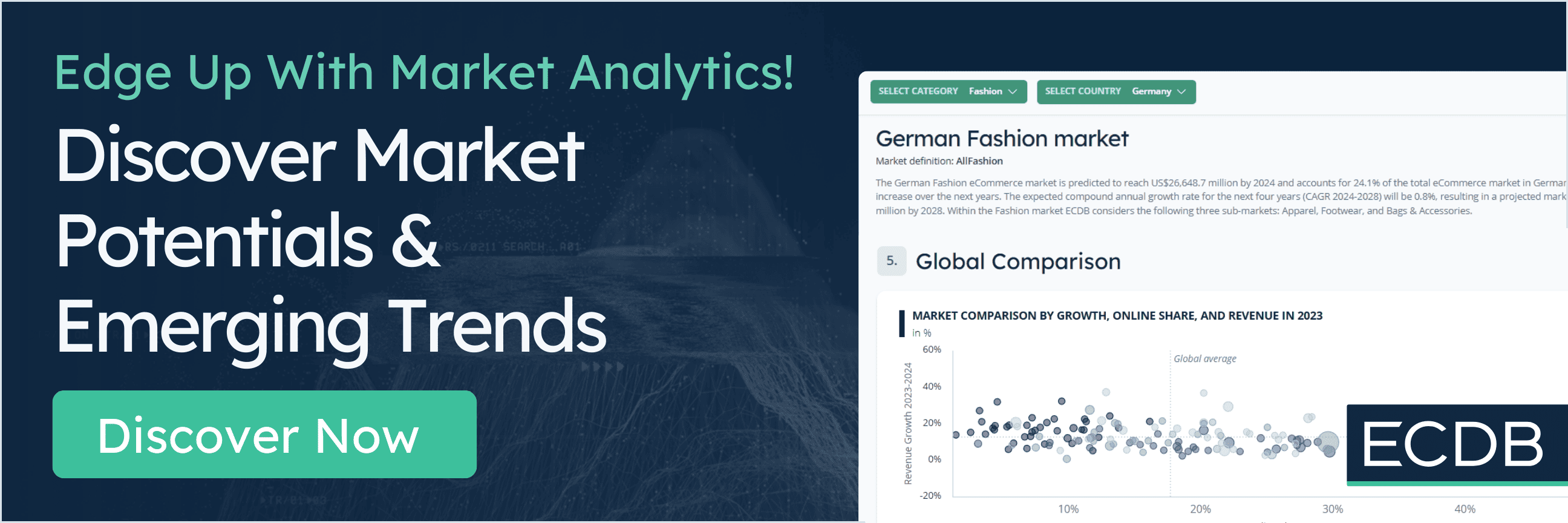Most of us are familiar with Amazon, MercadoLibre, and Shopee. But what about Bol.com, Skroutz, or Takealot.com? Although they are much smaller than the leading global marketplace conglomerates, they thrive as local players and bring variety to global eCommerce.
Amazon, MercadoLibre and Shopee Are Dominant in Core Regions
Amazon has the widest global influence, operating as the number one marketplace in over 16 countries. Thanks to its early launch and rapid expansion, the U.S. marketplace is known worldwide and serves as a role model for eCommerce businesses everywhere.
Similar marketplaces include MercadoLibre and Sea Ltd.'s Shopee, which generated a GMV of US$51.5 billion and US$100.5 billion, respectively, in 2024. Both are the number one marketplace in five countries: MercadoLibre in Argentina, Brazil, Chile, Colombia and Peru and Shopee in Indonesia, Malaysia, Philippines, Thailand and Vietnam.
Their secret to success? Amazon, MercadoLibre, and Shopee cater to a wide range of needs with their large selection of products. At the same time, however, each of the three marketplaces follow a spatial distribution pattern. Amazon works well in Western countries, such as the U.S., Canada, and Australia, as well as European countries, and MercadoLibre mainly operates in South America, particularly Spanish- and Portuguese-speaking regions. The same is true for Shopee, which is the number one marketplace in Southeast Asia.
Walmart Beats Amazon in India, PDD Holdings Is the Chinese No. 1
Few markets can withstand Amazon leadership, most of which are located in Asia. The two most populous countries in the world, India and China, have other marketplaces at the top of eCommerce. But ironically, in India it is Amazon’s arguably biggest U.S. competitor, Walmart through its subsidiary Flipkart.
In China, the domestic company PDD Holdings leads with its marketplace Pinduoduo. As of now, Finland is the only country outside of China in which PDD Holdings manages the number one marketplace with Temu. It is not unlikely, however, that this pattern is going to expand. Given the global uproar surrounding Temu since its 2022 launch, PDD Holdings is set to become a real Amazon contender, beating the market leader at its own game.
Few Markets With a Local Player on Top Remain
Around the world, there are several Gallic villages that resist takeover by big players. In smaller countries in particular, local marketplaces are more common, pushing conglomerates like Amazon aside.
In the Netherlands, for example, the marketplace Bol. – originally launched by the German media company Bertelsmann – was developed with the idea of becoming a European version of Amazon at a time when Amazon was not yet widely present in Europe. After the company Koninklijke Ahold Delhaize N.V. acquired the marketplace, its influence narrowed to the Benelux region while maintaining the number one position in the Netherlands. By launching in a timely manner, Bol. was able to gain a lead over Amazon.
Similar cases include Coupang in South Korea, Takealot.com in South Africa, and Allegro in Poland. All have built strong presences that cannot be superseded by global big players.
The Power of Locality
Not only time, but also local conditions play a role. In Greece, the geography, with many islands, as well as the fact that most packages come via Athens, was too complex for Amazon's logistics to be financially viable. This benefited Skroutz A.E., which was founded in 2005 and achieved last year a GMV of US$1.5 billion.
All in all, by centering on a specific country, it is easier for marketplaces to improve logistics. They usually also respond more quickly and easily to local customer needs.










